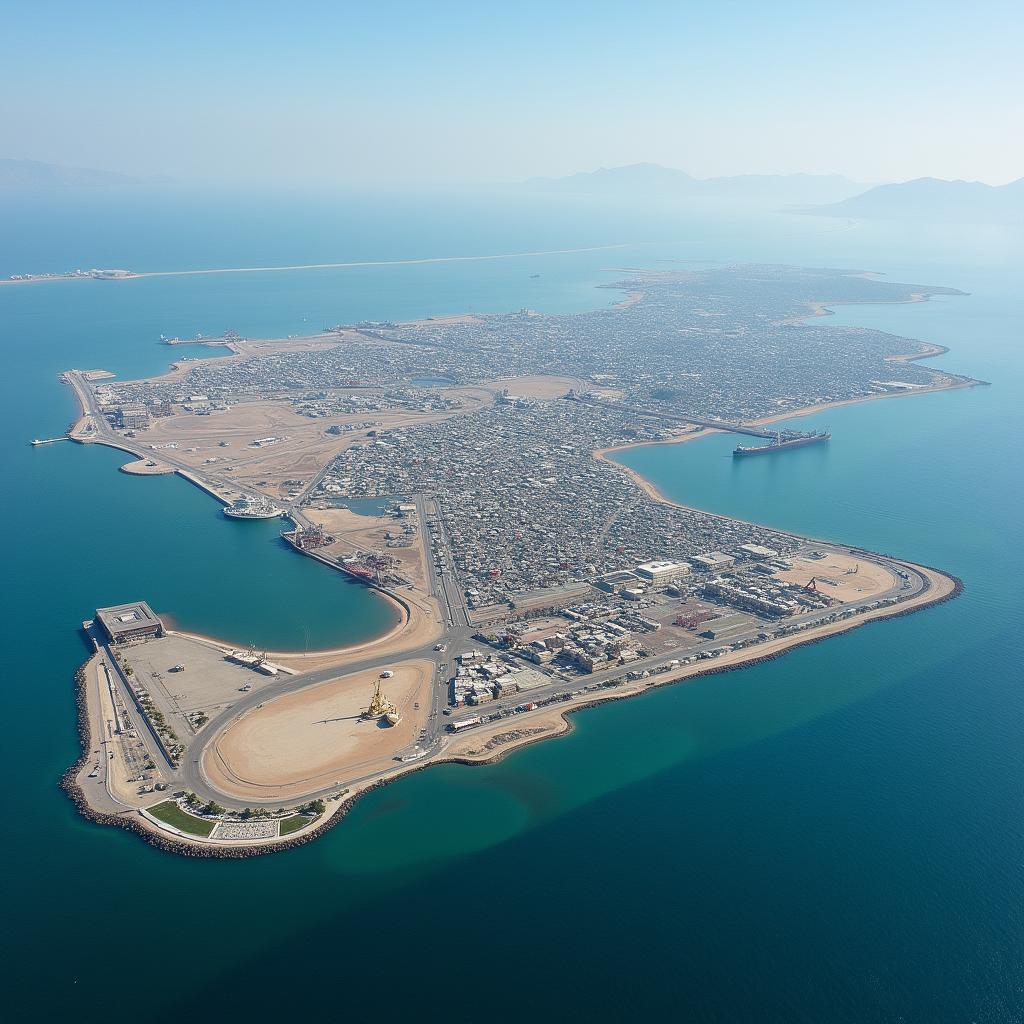Pakistan, nestled at the crossroads of Central Asia, South Asia, and the Middle East, enjoys a unique geographical position that has shaped its history, culture, and strategic significance. This advantageous location has bestowed upon Pakistan both immense opportunities and complex challenges throughout its existence.
A Gateway to Multiple Regions
Pakistan’s location serves as a natural bridge between several crucial regions. To the west lies the energy-rich Middle East, with its vast reserves of oil and natural gas. To the north, Pakistan shares borders with China, a rising global superpower and a key player in the Belt and Road Initiative. This strategic positioning makes Pakistan a vital link in the flow of goods, energy, and people between these regions. Furthermore, its shared borders with India, Iran, and Afghanistan underscore its role in regional geopolitics and security.
A Conduit for Trade and Energy
Historically, Pakistan’s territory has served as a passage for merchants and travelers traversing the Silk Road, fostering cultural exchange and economic activity. Today, this legacy continues as Pakistan seeks to become a hub for trade and energy transit. The China-Pakistan Economic Corridor (CPEC), a flagship project of the Belt and Road Initiative, exemplifies this ambition. CPEC aims to connect China’s western province of Xinjiang to Pakistan’s Gwadar Port on the Arabian Sea, opening up new avenues for trade and investment. This ambitious project has the potential to transform Pakistan’s economy and enhance regional connectivity.
 Gwadar Port, Pakistan
Gwadar Port, Pakistan
Diverse Geography, Diverse Resources
Beyond its strategic location, Pakistan boasts a diverse geography that encompasses towering mountain ranges, fertile river valleys, and arid deserts. This geographical diversity translates into a wealth of natural resources. The Indus River, the lifeline of Pakistan, irrigates vast agricultural lands, making Pakistan a major producer of crops like cotton, wheat, and rice. The country is also endowed with mineral resources, including coal, copper, and gold, offering significant potential for economic development.
Navigating Challenges, Seizing Opportunities
While Pakistan’s geographical importance presents significant opportunities, it also brings forth challenges. Regional instability, particularly in neighboring Afghanistan, has implications for Pakistan’s security. Managing relations with India, marked by historical complexities, remains a constant diplomatic endeavor. Additionally, Pakistan must address internal challenges such as water scarcity, climate change, and infrastructure development to fully leverage its geographical advantages.
Conclusion
Pakistan’s geographical importance is undeniable, shaping its past, present, and future. Its position at the crossroads of Asia affords it a unique role in regional dynamics and global geopolitics. By effectively leveraging its geographical advantages, fostering regional cooperation, and addressing internal challenges, Pakistan can harness its unique position to achieve economic prosperity and secure its place as a pivotal player on the world stage.
FAQs about the Geographical Importance of Pakistan
1. Why is Pakistan’s location considered strategically important?
Pakistan’s location at the crossroads of South Asia, Central Asia, and the Middle East makes it a bridge between these vital regions, influencing trade, energy flow, and geopolitical strategies.
2. How does the China-Pakistan Economic Corridor (CPEC) impact Pakistan’s geographical significance?
CPEC, a part of China’s Belt and Road Initiative, aims to connect western China to Pakistan’s Gwadar Port. This project has the potential to transform Pakistan into a key transit and trade hub, further amplifying its geopolitical importance.
3. What are some challenges Pakistan faces due to its geographical location?
Pakistan faces challenges related to regional instability, particularly stemming from Afghanistan. Additionally, managing relations with India and addressing internal issues like water scarcity and climate change are crucial for Pakistan to fully capitalize on its advantageous location.
4. How does Pakistan’s geography influence its economy?
Pakistan’s diverse geography, with fertile lands and mineral resources, supports agriculture and offers potential for industrial development. Its location on trade routes makes it a potential hub for regional trade and energy transit, further impacting its economic prospects.
5. What steps can Pakistan take to leverage its geographical importance for a brighter future?
Pakistan can focus on strengthening regional cooperation, attracting foreign investment, improving infrastructure, and addressing internal challenges to fully capitalize on its strategic location and achieve sustainable economic growth.
For any inquiries or assistance regarding Pakistan’s diverse offerings, please contact us at:
Phone: +923337849799
Email: [email protected]
Address: Dera Ghazi Khan Rd, Rakhni, Barkhan, Balochistan, Pakistan
Our dedicated customer service team is available 24/7 to assist you. Explore further insights on related topics by visiting our website for informative articles on iPhone 15 Pro Non PTA Price in Pakistan, iPhone 15 Pro Max Price in Pakistan 1TB, Watch Box Price in Pakistan, iPhone 6s Plus Panel Price in Pakistan, and Pixel Phones Price in Pakistan.
Leave a Reply